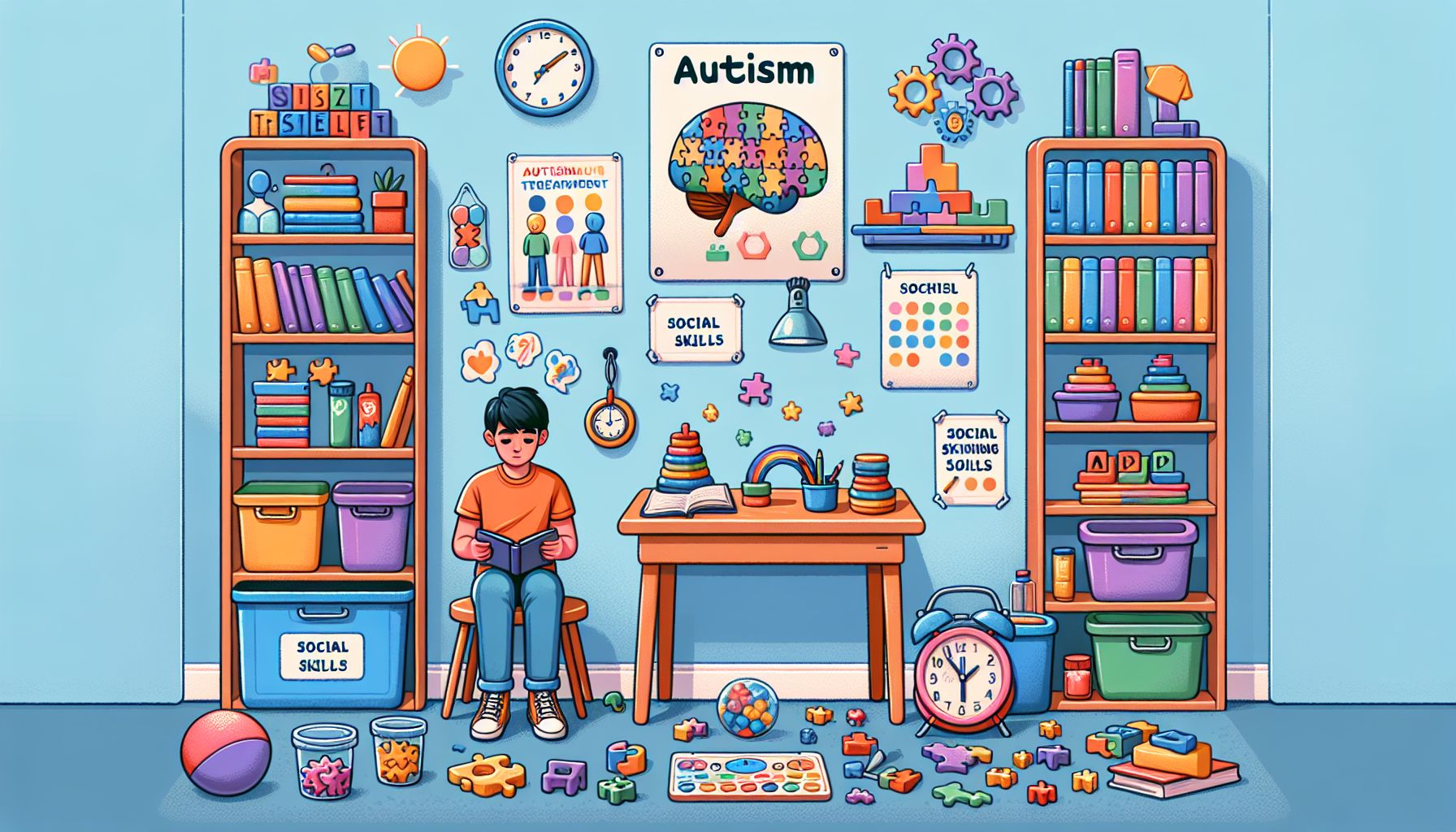Early intervention can significantly improve the quality of life for teens with autism. Approximately 1 in 59 teens in the United States has an autism spectrum disorder (ASD), according to the Centers for Disease Control and Prevention. Here’s the good news: with the right treatment and support, your teen can learn, grow, and thrive. This article will explore the best available treatments and therapies for adolescents with autism.
Understanding Autism in Adolescence
Adolescence is a time of significant change and growth, but for those on the autism spectrum, it can present unique challenges. In addition to dealing with hormonal changes, social expectations grow, and academic demands increase — all of which can be particularly overwhelming for teens with autism.
While every teen’s experience with autism is unique, some commonly reported challenges include social communication difficulties, repetitive and restricted behaviors, sensory issues like over- or under-sensitivity to light, sound, touch, tastes, smells, or movement. Adolescents with autism may also struggle with co-occurring mental health conditions such as anxiety or depression.
Choosing the Right Treatment
Autism is a spectrum disorder, meaning the symptoms, skills, and needs can differ greatly from one person to another. Therefore, there’s no one-size-fits-all approach when it comes to treatment. What works best for your teen will depend on their individual challenges and strengths.
Treatment for autism in adolescence typically includes a combination of therapies targeting behavior, social skills, language and communication, sensory issues, and mental health. The most successful treatment plans are usually multi-faceted and involve a partnership between professionals, the adolescent with autism, and their family members.
Behavioral Therapies
Behavioral therapies can be incredibly beneficial for teens with autism. These therapies aim to decrease problematic behaviors and increase desired skills and behaviors.
Applied Behavioral Analysis (ABA)
ABA is a widely recognized treatment for individuals with autism. It involves the use of positive reinforcement to increase desired behaviors and reduce those that may be harmful or interfere with learning.
Cognitive Behavioral Therapy (CBT)
CBT helps teens with autism understand and manage their thoughts and feelings. It’s particularly useful for addressing co-occurring mental health conditions, such as anxiety.
Social Skills Training
Social communication is often challenging for teens with autism. Social skills training can help your adolescent navigate their world more comfortably.
Social Skills Groups
Social skills groups provide safe and structured environments for teens with autism to practice important social skills. This can include understanding body language, maintaining conversations, and making friends.
Social Stories and Video Modeling
These tools can help teens with autism understand and predict behaviors in different social situations. They use stories and videos to show what behaviors are expected in various social settings.
Communication Therapy
Many teens with autism can benefit from therapies aimed at improving verbal and nonverbal communication.
Speech and Language Therapy
Speech and language therapy can enhance an adolescent’s ability to express and understand language. This type of therapy can also help with nonverbal communication, such as understanding facial expressions and body language.
Sensory Therapy
Sensory issues are a common aspect of autism. Occupational therapists can help teens develop coping strategies for managing sensory sensitivities.
Occupational Therapy
Occupational therapists work with teens to improve everyday skills, such as dressing, eating, and handwriting, which can be impaired by sensory sensitivities.
Mental Health Support
Given the increased risk of co-occurring mental health conditions in teens with autism, adequate mental health support is crucial.
Psychotherapy
Psychotherapy, or talk therapy, can help teens with autism address any emotional challenges they may be experiencing. This can include stress, anxiety, depression, and issues around their identity and self-esteem.
Family Therapy
Family therapy focuses on strengthening the family unit to better support a teen with autism. It offers families the tools they need to navigate the intricate journey of adolescence with autism.
Treatment for autism in adolescence is a journey, one that requires commitment, patience, and a whole lot of love. But with the right support, every teen with autism has the potential to lead a fulfilling and productive life. Embrace the journey, cherish the small victories, and remember — no teen with autism has to navigate this path alone. The support and treatment options available today can form the foundation for a brighter tomorrow.

